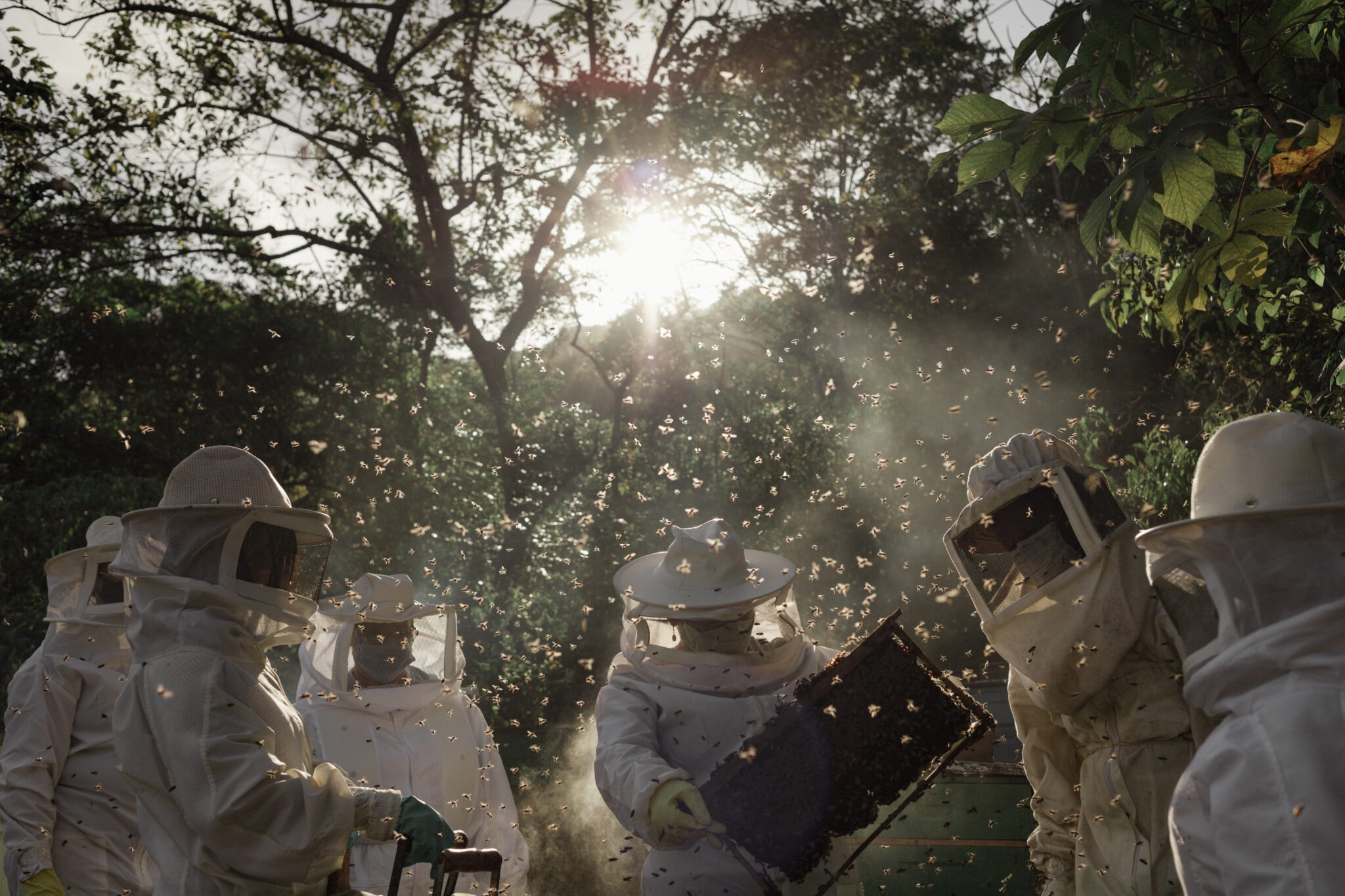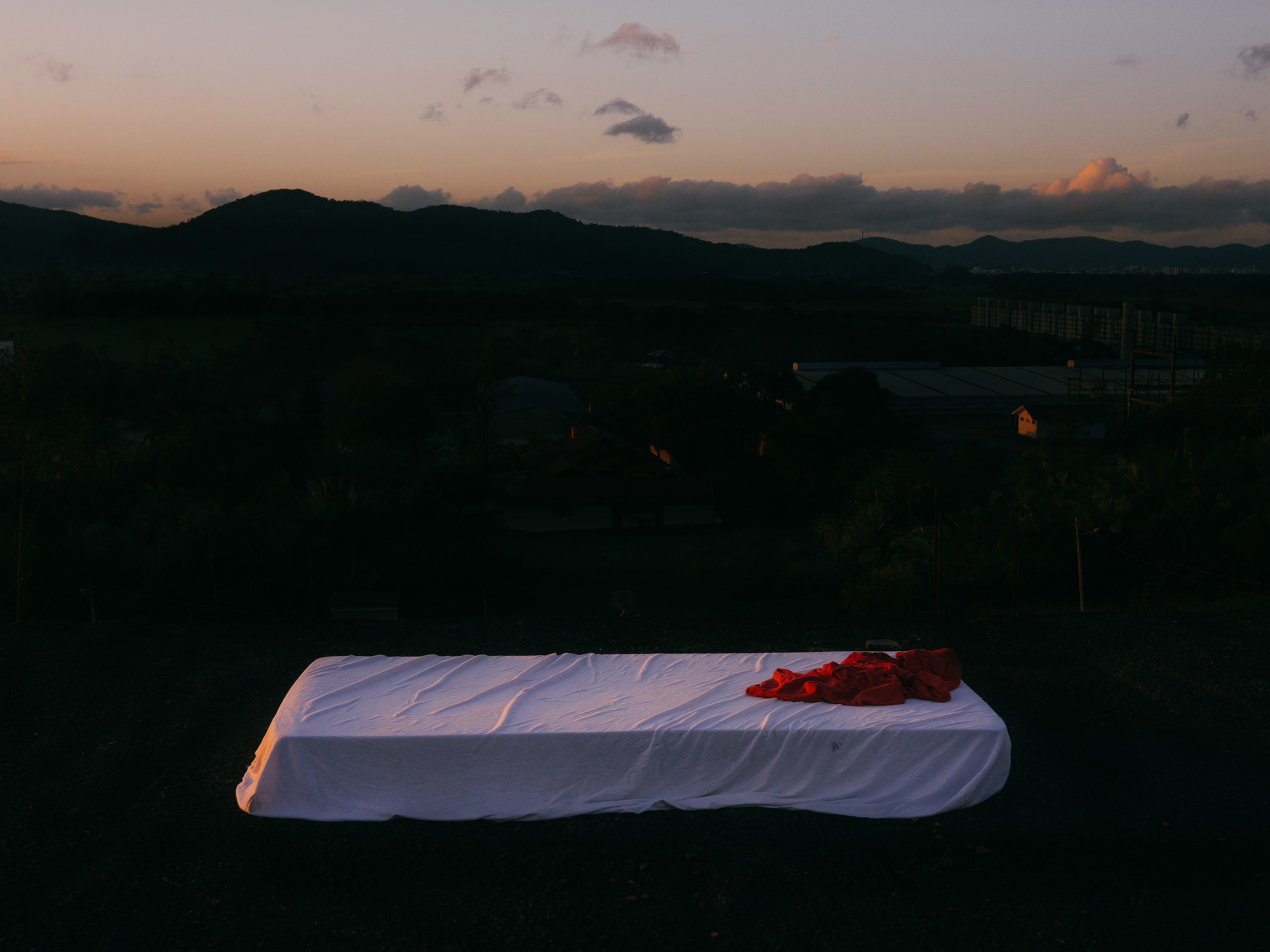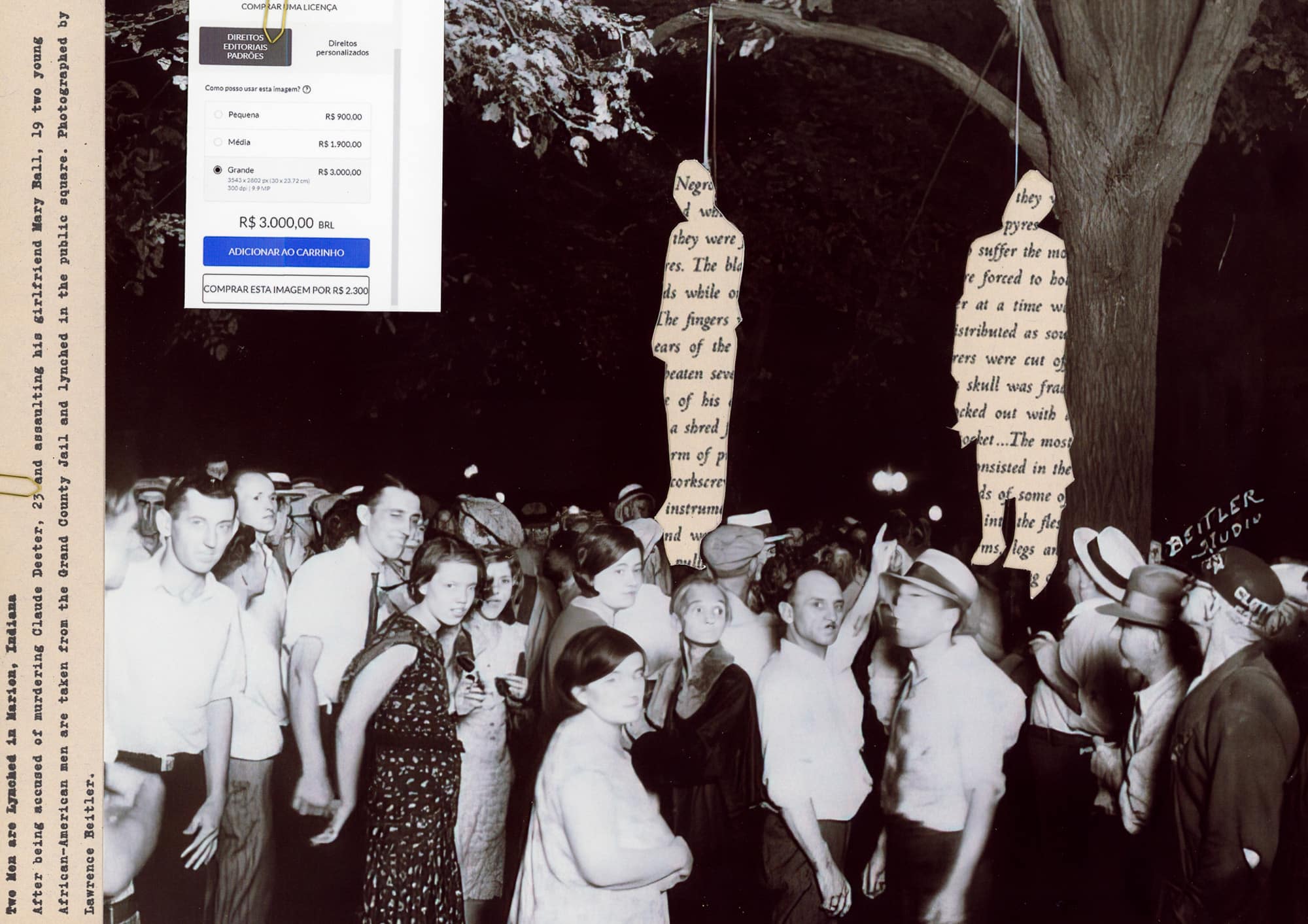
Beekeepers
In “Las Abejeras” – a work recognized with an honorable mention at the Poy Latam 2023 awards – Brazilian photographer Gabriela Portilho documents the way of life of a community of female beekeepers in northeast Brazil. They had to face sexism from their male counterparts and mistreatment from the government of Bolsonaro. However, with the support of a local university, they managed to become the region’s first successful female beekeepers and serve as an example for other rural communities struggling against the excessive use of pesticides imposed by agribusiness.
By Alonso Almenara
In just three months, at least half a billion bees suddenly died in Brazil. That happened in 2019, shortly before the start of the pandemic, and one of the causes was the indiscriminate use of pesticides, a common practice during the Bolsonaro era, which continues due to agribusiness’s ongoing power and influence. This news was one of the reasons that motivated Brazilian photographer Gabriela Portilho to embark on a project focused on the close relationship between bees and humans. These insects are responsible for approximately 70% of the pollination of plants grown for food, and their death jeopardizes agriculture and food security worldwide. Furthermore, they are essential for pollinating native forests, and their disappearance can trigger the death of entire ecosystems.
Looking for stories related to this issue, Gabriela came across the unique case of a group of female farmers in the forested area of Pernambuco, northeast Brazil. Since 2020, they have combined genetic improvement techniques with ancestral knowledge to seek sustainable ways of breeding and protecting bees. Working in partnership with the Federal Rural University of Pernambuco, they became the region’s first female beekeepers, a job previously done only by men. “With the money they earned from honey, they conquered a new profession and financial independence,” the photographer notes.
But, the project also generated a new dynamic in the community. To attract more bees, the women began to adopt sustainable planting techniques and transform the surroundings of their homes, previously unproductive areas, into agroecological oases. Today, their plots yield high-quality flowers, fruits, and honey without pesticides.
Sônia Maria da Silva, one of the beekeepers in Assentamento Ximenes, Barreiros, Pernambuco. Many people now living in the settlement had to leave their homes, crops and animals, and were relocated in 2013 as a result of a project to modernize and expand the port of Suape. The settlement is in the middle of a sugarcane plantation that frequently floods when it rains. there are no paved roads, schools or health centers, and many of the houses are precarious.
Right: Beekeeper Sônia Maria da Silva during the cassava harvest in Assentamento Ximenes, Barreiros, Pernambuco. Before producing honey, Sônia lived almost exclusively from handicrafts and agriculture, earning about 2 Brazilian reais for each kilo of cassava she sold in the municipality’s market. With the sale of honey she receives almost 20 times more for the same amount produced. Left: Different species of flowers collected from beekeepers’ houses and gardens in Zona da Mata, Pernambuco. To attract more bees, they started planting more flowers around their houses.
How did you connect with the community of beekeepers in Pernambuco?
The idea came up in 2021, and although I had wanted to do something about bees for quite some time, I didn’t know exactly what. Many of my projects start like that, not with a clear idea but with a feeling. Bees are interesting to me for several reasons: they have a social organization where females play a predominant role because they are small, but they can also be a deadly threat because they make their own food.
There’s something symbolic that attracts me to bees. In 2021, I received an invitation from an Italian organization to put together a project called “Horizons for Humans,” curated by Lina Pallotta. They invited me and several photographers worldwide, such as Antoine D’Agata, Paolo Pellegrin, and Prin Rodríguez. They asked us to propose project ideas that addressed new horizons post-pandemic. I started looking for stories related to bees, and I came across the case of this community of beekeepers in Pernambuco.
These women used to live in a coastal area and were forced by the Bolsonaro government to relocate due to the construction of a port. The problem is that they were placed in a very arid region where sugarcane had been cultivated for 400 years, so the soil was completely degraded. They were farmers, and they had no way to produce their own food in this new place, which was quite serious, especially because it happened during the pandemic. And that political aspect is one of the things that motivated me to document this story.
Beekeeper Sonia Maria da Silva shows one of her fishing nets. In addition to beekeeping and knowledge of the land, many women in the settlement do artisanal work to support their families’ income.
“We were hosted by these women and we did everything following their rhythm of life: we woke up together at three in the morning, we worked together, we had lunch together, we shared the whole day. I don’t believe in projects where the photographer is put in a very distant position. You can’t produce very good things from that distant place.”
I said they had to seek other ways to sustain themselves: they got in touch with the Federal Rural University of Pernambuco with the idea of working with bees, an activity reserved for men in the region until that point. Pernambuco is a poor place with significant sexism, so it was not easy for them to carry out this project. But they finally found a zootechnics professor named Renata Valeria, who gave them all the necessary information. That became a significant source of income for them. Previously, they cultivated cassava and had to carry many kilos to earn one or two Brazilian reais, while with a small jar of honey, they could now earn 30 or 40 reais, and they didn’t have to carry as much. It was an easier way to live.
Moreover, as they were the first women to enter this activity, it empowered them greatly. Since this place is surrounded by sugarcane and heavily used pesticides, they began to understand the importance of preserving the native forest and cultivating foods that could attract bees. They started developing a more ecological mindset and planning production more sustainably. So, a simple activity like working with bees brought about a series of important changes for them.
You mentioned the political context in Brazil. To what extent is this work motivated by a critical view of Bolsonaro’s agricultural policies?
I think we went through the pandemic with the worst possible government. It was a terrible time, and I thought a lot about necropolitics during that period. The Bolsonaro government was attacking this project’s elements: women, universities, the land, local agriculture… we could say life itself. So, this project was like a breath of fresh air that served me to see other horizons.
Left: Pollen from flowers that feed bees seen under a microscope at the campus of advanced studies at the Federal Rural University of Pernambuco. Pollen from each type of plant has a unique shape and provides clues to the area from which the honey originates. Right: Honey extracted directly from a colony of uruçu bees native to Pernambuco. Native bees have no sting and anyone can keep them at home. In addition to the cultivation of Apis bees, the University also teaches the management of native bees.
What were you interested in visually capturing in this photography series?
I didn’t want to document what was happening merely to capture the atmosphere. For me, it’s an atmosphere of regeneration, care, and affection. So, I tried to translate that into images. I was also interested in including more scientific photos, using a microscope, for example. The idea was to connect the care of the land with the science that was being disregarded at that time in Brazil. The key to the urgent changes we need to make lies in the intersection of science with politics, the emotional and women’s struggles… we need all of that right now.
How was your relationship with these women?
I arrived in this community through the Federal Rural University of Pernambuco; Professor Renata Valeria took me there, and we stayed for about ten days. These women hosted us, and we did everything following their way of life: waking up together at three in the morning, working together, having lunch together, spending the whole day together. I don’t believe in projects where the photographer takes a distant position. I think you can’t produce very good things from that remote place. They participated and contributed their ideas.
One thing that caught my attention is that they like to wear their beekeeper suits with a lot of pride and feel great pride in their work. So, they enjoy being photographed during their activities. When I arrived, I remember they were sewing their suits to ensure they looked good in the photos. They all sewed together, and even the professor participated. They were very happy and proud, and very involved in my project.


